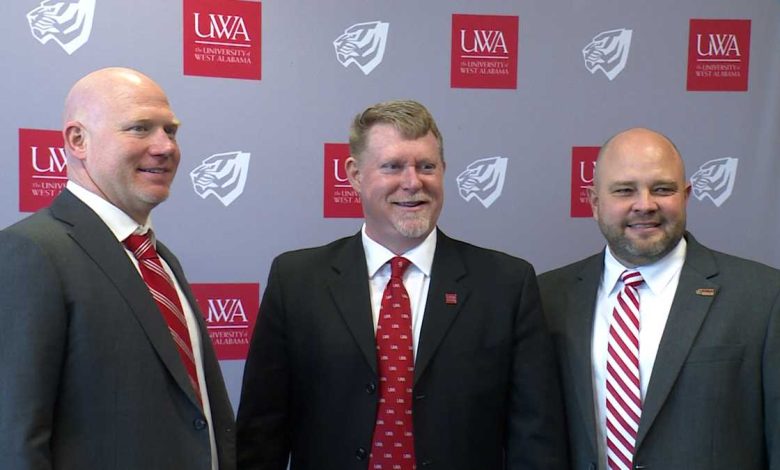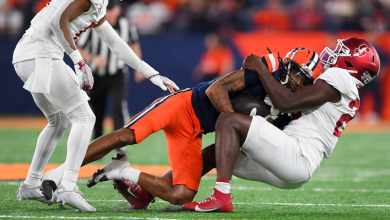How Scott Cochran was appointed West Alabama football’s head coach

In the world of college football, coaching transitions can make or break a program. When a team is looking for new leadership, the decision of who to hire can have long-lasting effects on not only the team’s performance but also its culture and community engagement. In a significant move for both Scott Cochran and the University of West Alabama (UWA), Cochran, a well-known figure in the football world, was appointed as the head coach of the UWA Tigers. This hire marks a new chapter for the program and offers Cochran an opportunity to showcase his talents on the collegiate coaching stage in a new role.
Scott Cochran’s journey from assistant coach to the head of a football program is a tale of perseverance, determination, and a deep passion for football. Known for his high-energy style and dedication to player development, Cochran’s appointment as the head coach at UWA represents the culmination of years of experience in the game, combined with a desire to lead a program to new heights. This article takes a look at how Cochran was appointed head coach at UWA, examining his background, the hiring process, and what his leadership means for the future of the program.
1. Scott Cochran’s Background in Coaching
Before his appointment as the head coach at UWA, Scott Cochran was already a highly respected figure in the college football world, particularly for his work as a strength and conditioning coach. Cochran’s career in coaching began at the University of Alabama, where he served as the team’s head strength coach for over a decade. During his time with Alabama, Cochran was instrumental in helping the team win multiple national championships and build a reputation as one of the most physically dominant programs in college football.
Known for his charismatic leadership style and unrelenting energy, Cochran became a key figure in Alabama’s success. His ability to push players to reach their full physical potential, both in the weight room and on the field, helped establish a winning culture at Alabama. Under his guidance, Alabama’s athletes were known for their strength, conditioning, and mental toughness—traits that contributed significantly to their dominance during Cochran’s tenure.
In addition to his role at Alabama, Cochran also had a stint with the University of Georgia, where he served as the special teams coordinator. This position allowed Cochran to further develop his coaching acumen and deepen his understanding of the intricacies of football beyond just strength and conditioning. His background as both a strength coach and a special teams coordinator gave him a well-rounded coaching perspective, preparing him for the next step in his career.
However, despite his success as an assistant coach, Cochran’s ambition always leaned toward becoming a head coach. He wanted to be at the helm of a program where he could implement his philosophy, mold the team’s culture, and lead the program to success. West Alabama became the perfect opportunity for him to take that next step.
2. The Search for a New Head Coach at UWA
The decision to hire a new head coach at UWA came after the resignation of the previous coach, who had served as the Tigers’ head coach for several seasons. UWA was looking for a new direction, someone who could bring a fresh perspective to the program, reinvigorate the team, and improve upon their recent performances. The search for a head coach at the Division II level is often a delicate balance between finding someone with the necessary experience, leadership skills, and the ability to connect with players.
For UWA, the hiring process was thorough. The athletic department focused on finding someone who not only had a strong background in football but also understood the unique dynamics of a Division II program. The new head coach needed to be able to recruit effectively, build relationships within the community, and develop players both on and off the field.
The hiring committee sought out candidates who could bring energy and excitement to the program. In a conversation that revolved around revitalizing the Tigers’ football culture, Scott Cochran’s name quickly came to the forefront. His reputation as a high-energy coach, his success in building championship-winning teams, and his passion for football made him an attractive candidate for the position.
3. Why Scott Cochran Was the Right Fit for UWA
Several factors played a role in the decision to hire Scott Cochran as the head coach of the University of West Alabama’s football team. Cochran’s extensive experience working under some of the best coaches in the country was a major selling point. His work with Nick Saban at Alabama and Kirby Smart at Georgia had helped him develop a deep understanding of the game, both strategically and tactically. His ability to motivate players, create a competitive environment, and foster a culture of excellence made him a perfect fit for a program looking to take the next step.
Moreover, Cochran’s success as a strength and conditioning coach had given him a unique skill set that many head coaches in the college football world do not possess. As the person who has been directly responsible for the physical conditioning of players, Cochran knows how to build a program that not only performs well on game day but is also physically prepared for the grind of a full season. This would be a huge asset for the Tigers, as Cochran’s commitment to conditioning and development would ensure that players would be in top shape throughout the season.
Another significant factor in Cochran’s hiring was his leadership and his ability to connect with players. Cochran has always been known for his high-energy coaching style, which energizes his players and motivates them to push through difficult situations. His passion for the game and his commitment to helping players reach their potential made him a natural choice to lead the Tigers. The West Alabama athletic department was looking for someone who could build relationships with his players, and Cochran’s reputation for fostering a supportive and competitive environment was a major asset.
Additionally, Cochran’s understanding of the recruiting landscape was crucial. Division II schools like UWA face unique challenges in recruiting compared to their FBS counterparts, and Cochran’s experience recruiting at Alabama, Georgia, and other top-tier programs gave him the knowledge and skills needed to attract high-caliber talent to UWA. His reputation as a respected coach and his ability to recruit players would be a key component in elevating the program’s level of competition.
4. Cochran’s Transition to Head Coach
Transitioning from an assistant coaching role to a head coach is always a challenge, even for someone with Cochran’s vast experience. While he had worked with some of the best coaches in the world, being in charge of a program meant that he would need to handle all aspects of the team, from offense and defense to special teams and player development.
However, Cochran’s background in both strength and conditioning and special teams gave him a broader understanding of the game than many first-time head coaches. He had already built relationships with players as a coach, which would ease the transition. His knowledge of how to get the most out of each player’s potential, combined with his passion and high-energy approach to coaching, made him well-equipped to take on the responsibilities of running the team.
As he moved into his new role, Cochran was focused on creating a culture of accountability, discipline, and hard work. He wanted to instill the same values that had made Alabama one of the most successful programs in college football and apply them to UWA’s football team. He emphasized the importance of a strong work ethic, mental toughness, and a relentless pursuit of excellence.
The transition was not without challenges, of course. Cochran had to quickly familiarize himself with the specific needs and dynamics of UWA’s football team. The program had been through a period of transition, and Cochran knew that success wouldn’t come overnight. But his ability to inspire, motivate, and set clear expectations for his players helped ease the transition.
5. The Future of West Alabama Football Under Cochran’s Leadership
Now that Scott Cochran is at the helm of West Alabama football, the future of the program is bright. He brings with him a wealth of knowledge, a passion for developing players, and a proven track record of success. Cochran’s high-energy coaching style and commitment to player development will help the Tigers grow into a competitive force in the Gulf South Conference.
Cochran’s emphasis on building strong relationships with players and fostering a family-like culture within the program will be key to his success. He has already made it clear that he values the development of his players both on and off the field. His leadership style, which combines discipline with support, will help ensure that UWA football is built on a foundation of character and excellence.
Additionally, Cochran’s experience with recruiting and player development will help the program attract top talent and compete at a high level. His familiarity with the recruiting process, his ability to connect with high school athletes, and his reputation as a top-tier coach will be major assets in building a competitive roster.









